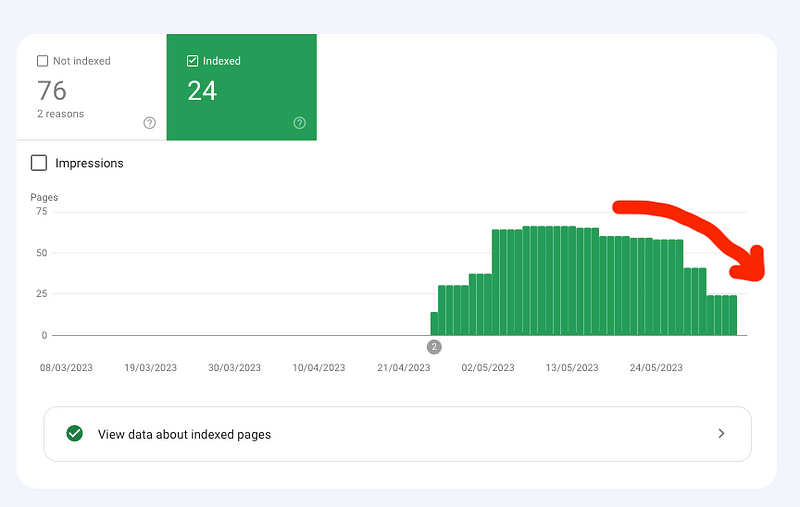
I’m running a ChatGPT blog experiment. I’ve posted 100 blog posts primarily written with ChatGPT to a brand-new domain.
The site is called www.t3ch.blog.
This week, the site already gets up to 5 visitors a day—from Bing.
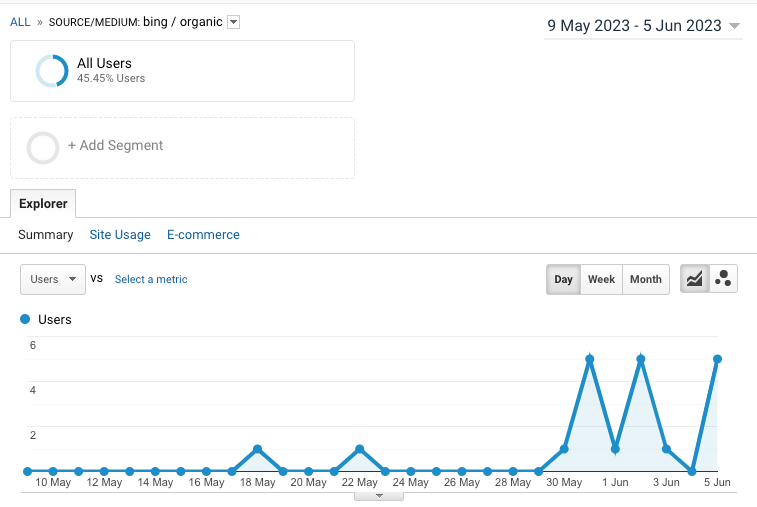
But Google has different plans.
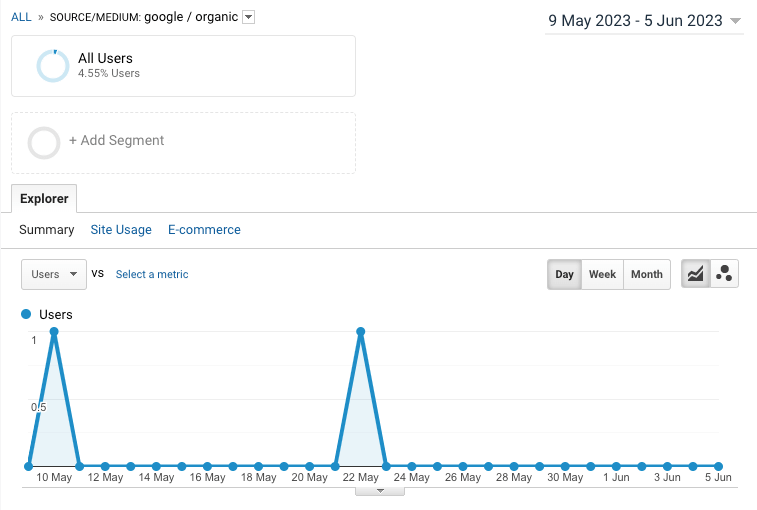
Basically, more than 50% of the pages have dropped out of Google rankings. Also, there hasn’t been a single visitor from Google in 3 weeks.
So did Google just smoke my site and got angry because of ChatGPT-generated content? Will ChatGPT cause all blogs to crash?
Nope. Here’s what’s really going on.
If you have seen similar reports or have had the same experience, stay tuned. I will explain what you need to do to get your sites back to the index.
What’s Going On?
Before explaining why Google is de-indexing ChatGPT-generated posts, let’s take a look at what’s happening on my site.
First of all, the site is less than 2 months old at the time of writing. I posted 100 blog posts to the site in 2 weeks in late April—6 weeks ago.
As I did this, Google quickly added most of the posts to search results but then started to remove them:
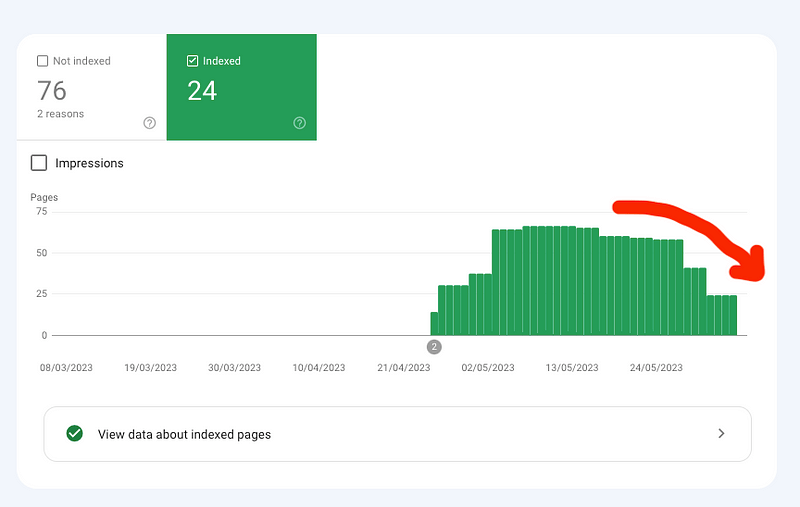
The number of pages in the search results has dropped from 70 to 25.
And if I check the number of pages on Google directly, it appears to be only 14.
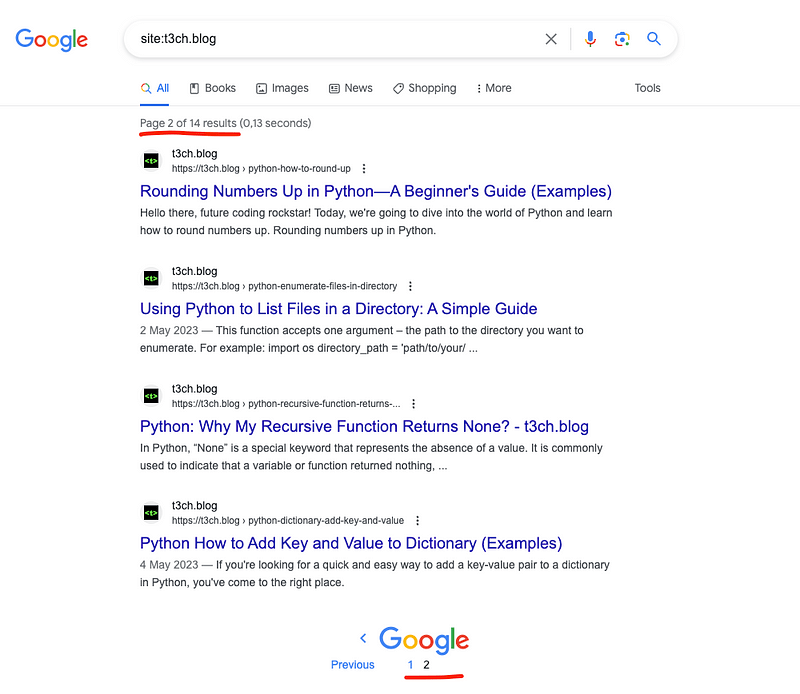
Be it 25 or 14, it appears that Google has decided to remove most of my posts from search results.
On the other hand, Bing is constantly bringing in more traffic to the site.
But why is this?
It’d be so tempting to say that Bing favors ChatGPT content because they’re using it/investing in it. And Google hates it because it’s a threat to their business.
But this is not the case. As a matter of fact, it’s way too early to draw any conclusions.
Let’s take a look at what really causes this and what you can do if this happens on your site.
#1 Google Sandboxing
Basically, all new websites go through Google sandboxing period where Google tests things around.
The newer the site, the more unexpected things can happen to it. (This has nothing to do with ChatGPT or AI, by the way.)
I had a similar experience with one of my niche sites (created way before the time of ChatGPT).
The site had about 15/30 posts in the Google index. Then all of a sudden there were only 3 posts left. That lasted for a month or two.
Then those posts came back to Google and started to get a ton of views and are doing really well today.
Even Older Pages Can Get De-Indexed
I’ve even seen pages that are in the index drop out and then come back with momentum.
Here’s an example post from another site (not t3ch.blog):
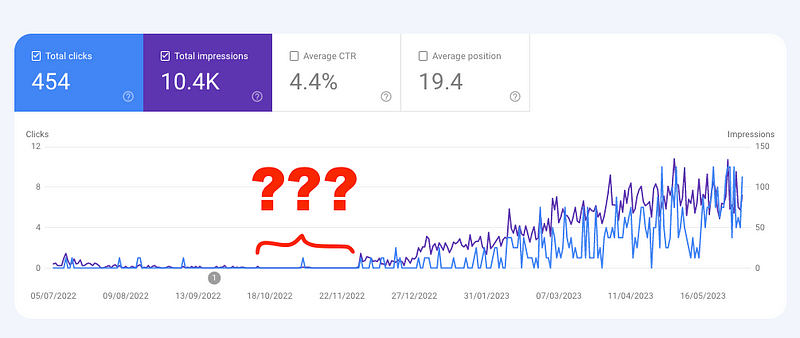
This is about 12 months old post. It came out of index for about 2 months all of a sudden but then it started to pick up steam.
Prior to the upward trend, many would have drawn the conclusion that this post got destroyed by Google and will never do well. But now it does.
And by the way, this is an affiliate post where one visit brings in $0.15 on average. So the article makes about $20-$40 every month now.
Had I reacted to this when it got dropped from the index, I would have just missed out.
#2 Many People Say It’s ChatGPT
Given the fact that I used ChatGPT to write all my posts, it’s tempting to say this is what caused Google to drop them.
But this is most likely not the issue either. Google has even stated that using AI is fine as long as the quality and value are there.
So AI is fine as long as it provides value. So just the fact that a blog post is partially written with ChatGPT won’t get it out of the Google results.
#3 Ton of Posts in 2 Weeks Is Suspicious?
Well, if it’s not the AI that bothers Google, perhaps it’s the inconsistency of my posting schedule.
After all, I posted 100 posts in less than 2 weeks and then went completely silent. But this is not the issue either.
As long as the content is relevant and provides value, the posting frequency doesn’t matter. Google and other search engines care about value, usefulness, and relevancy.
- A weather site needs to stay up to date every day.
- But a site that teaches maths doesn’t—the principles are old and will stay the same.
I’ve gone inactive for months on my blogs and I’ve never seen it have a big impact on rankings.
For example, here are 6 months of inactivity on my niche site. The site kept on growing (even with a seasonal niche with a downward trend in the fall):
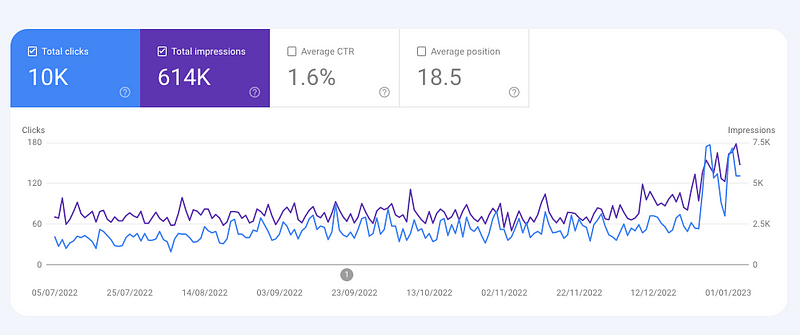
#4 Too Early to Say Anything
It’s way too early to say anything about the de-indexing of the blog posts.
Sometimes Google does this, and sometimes they don’t.
It might take months before I get those pages back to the index. And for sure, they might never return.
The reason why those pages aren’t in the index has nothing to do with AI.
#5 The Content Isn’t Unique
Now, let’s say the blog posts never return to Google.
If it’s not the AI, inconsistent schedule, or Google hates ChatGPT, what could it be?
The answer is simple.
The quality and uniqueness of the content.
The issue with ChatGPT-written content is that it doesn’t bring anything new to the internet.
For a blog post to thrive, it needs to add something new to the table, such as a unique take, opinion, or experience.
But ChatGPT tends to repeat stuff it has seen on the internet.
This is the real problem.
If you use ChatGPT to generate a 500-word blog post about “How to Lose Weight”, it won’t be indexed or ranked. There are hundreds of thousands of similar posts that answer the question.
Google doesn’t index pages just to show the same answers to searchers. Those replicate pages just eat up space in the Google index, slowing it down.
So the real issue might be in the usefulness of the content. If you have a ChatGPT-generated website that has issues with ranking on Google, this is probably the reason.
I’ve written a separate guide on how to write blog posts that rank. Many of these criteria aren’t met with ChatGPT-generated content.
Wrapping Up
I bet there are many bloggers out there experimenting with AI—and that’s a good thing!
AI is developing fast and it might just be that in a couple of years, everyone needs to use it to thrive.
But remember, Google and other search engines appreciate value.
If your blog post is generated with ChatGPT, it’s basically spinning other peoples’ words and adding nothing new to the table. This is what prevents the sites from ranking or even indexing on Google.
